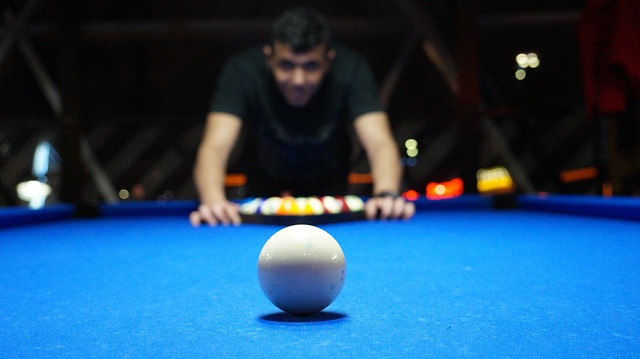Relocating a pool table in Texas requires special care due to challenging streets and unpredictable weather. Potential damages like cracks, warped slate, broken cues, and damaged legs can be mitigated by professional disassembly, adequate padding, and secure transport within a reputable moving company. Early recognition of risks and choosing the right tools and movers are key for a smooth move in Texas.
Moving can be stressful, especially when it comes to valuable possessions like your pool table. If not handled properly, a pool table can sustain significant damage during a move in Houston, TX. From scratches and dents to warped legs and broken cues, understanding common causes and your rights is crucial. This guide explores pool table damage during moves, available protection options, repair or replacement considerations, and more, offering valuable insights for Texas residents.
Understanding Pool Table Damage During Moves in Texas

Pool table damage during moves is a common concern for many Texans. When relocating, furniture—including pool tables—can be subjected to various stresses like sharp turns, jostling, and uneven surfaces. These factors can lead to dents, scratches, chips in the slate, or even more serious structural damage. Recognizing these potential issues is crucial for Texas residents planning a move with their cherished pool table.
Understanding the risks early on allows you to take preventive measures like disassembling the table professionally, padding it adequately, and securing it within your moving truck. Additionally, choosing a reputable Houston-based moving company specializing in handling fragile items can significantly minimize the risk of damage during transport.
– Common causes of damage during a move

Moving can be a stressful process, and pool tables, due to their size and fragility, are particularly vulnerable to damage during transit. In Houston, Texas, where busy neighborhoods and narrow streets can complicate moves, the risk of pool table damage is even higher. Common causes of this damage include rough handling, incorrect disassembly, and exposure to extreme temperatures or humidity levels.
During a move, furniture movers may drop or collide pool tables, causing chips, cracks, or warping in the slate surface. Improper disassembly, such as not securing loose pieces or using incorrect tools, can lead to broken cues, damaged legs, or bent rails. Extreme weather conditions common in Texas, like high heat and humidity, can cause wood components to swell or shrink, resulting in a warped table that may require professional repair or replacement.
– Types of pool table damage: scratches, dents, warped legs, broken cues

When moving in Houston, Texas, protecting your pool table is a top priority, especially if it’s an antique or high-end model. Common types of damage include visible scratches on the table surface and legs, as well as deeper dents that can compromise its structural integrity. Additionally, warped legs due to exposure to moisture or extreme temperatures during transit are not uncommon. Breakage of pool cues is also a significant concern, as these delicate tools are easily damaged if not properly secured.
In Texas, where pool tables are an integral part of many homes and recreational spaces, knowing what to do in case of damage can save you from costly repairs or replacements. It’s crucial to engage professional movers who have experience handling such fragile items, ensuring they’re packed securely with custom crates for safe transport.
When moving in Houston, Texas, protecting your precious pool table should be a top priority. By understanding common causes of damage and being aware of potential issues like scratches, dents, warped legs, or broken cues, you can take proactive measures to ensure its safe transport. If damage does occur, know your rights as a Texas resident and explore repair options to get your table back in playing condition promptly.
